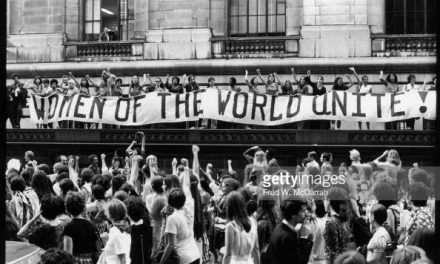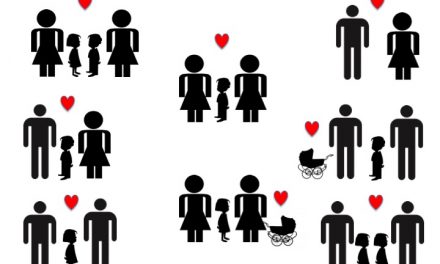
The Personal Construction of Self

The “personal is political” is a phrase that when dissected means that personal decisions are not essentially personal. It suggests that what people assume to be personal decisions are actually decisions influenced more heavily by political and societal pressures than real personal thought processes. This is an important concept to understand as it relates directly the trends and stereotypes that society normalizes for people over time. Society grows comfortable with normalizing these traditions, and people conform their ways to basically avoid rejection if they behaved otherwise.
So many people are afraid of change, but another crucial point the phrase the “personal is political” makes is that change in one person can change the world. I learned this at a very early age. Early in life, I understood that not everyone should be the same, and growing up facing the circumstances I faced made me develop a passion for uniqueness.
I grew up in a predominantly black neighborhood and attended a predominantly white school my whole life. I can recall so clearly those feelings of rejection from my black peers because I never fit in with them and their behaviors. I had a different outlook on life, though. I was never boastful, but I did take great pride in my integrity and my strength to remain true to myself.
Understanding the concept that race is a social construction entails understanding that standards placed upon people just because of their skin color is not an accurate reflection of who they are. Race is biological, a trait that is naturally assigned during birth, and a trait that does not make one person any more or less human than another. The social construction of gender maintains an inequality in society. As a result of this, many have blurred understandings of privilege. Personally, the social construction of race hindered my understanding of my privilege. Because I never w
anted to encounter confrontation with my peers, I remember I used to smother my success and achievements. In reality, though, accomplishments and achieving goals you set for yourself should never be suppressed to the power of others. A black person’s success is the same as a white person’s success and this is sustains infinite truth across all races.
My lifestyle attracted different types of attention toward me than the people I associated myself with. Because I did not fit the stereotypes predetermined for the black population in the school, I became a more likable person outside my race. I became known as the token black girl around the community, which in hindsight was an unintentionally harmful label to give someone. Because of the social construction of race and my abilities and willingness to overcome the barriers and obstacles intended to keep me grounded, I was treated with more respect from the white community than my black peers. They expected great things from me, and they expected me to get better and better with every new thing I put my mind to; but because other black students did not fit in well enough with the white community, they did not have as much respectable expectations for them.
The struggles that present themselves as different communities and people of different races try to intertwine tie into the concept of assimilation. Assimilation refers to what structures minorities’ behavior when they feel pressured to fit in. Although I am confident in who I am and do not see conforming myself to fulfill others’ expectations of me, I do understand the importance of appropriate behaviors. People of the black community have an important, over-arching life decision to make. Black people must decide if they are going to amount to the belittling stereotypes and standards society lays out for us, or if they want to understand how to have a voice as a minority in most societies and communities. Society expects gangster, aggressive, careless behavioral decisions from black communities, so it is important to understand why it is okay to be different. As a black child growing up in predominantly white environments, I understood that success requires non-traditional behavior.
Rather than being the careless black child in school who did not care about her grades or how she presented herself in the public, I took pride in going against all odds. I was comfortable with rejection from the black community if that is what it took for me to remain true to myself. I knew that I did not want to be defined by and have those stereotypes held true to my name. I demanded respect from the people around me. Therefore, I do not explain the assimilation I experienced as the result of discomfort. I define it as something I knew I had to do to show the superior race I possess the same respectable qualities they do and deserved respect as a human being just as much as they do.
Structural racism refers to the concept that race is used as a determinant in maintaining a hierarchical society. These inequalities are discovered through comparisons. This becomes troublesome when people not only utilize these standards to maintain a social order, but they implement these standards as strategies to conform their beings and individualities. This occurs more often in minority groups, but the time dedicated to meeting expectations is time spent unconsciously smothering their privilege. To be a successful black person, to be a strong-willed black person, to be a straight black person, to be an able-bodied black person are all privileges that are trivialized by the social constructs.
One extraordinary example in the media that I think my story parallels is Oprah Winfrey’s success story. Oprah spent a lot of time picking herself back up after rejection and failed attempts, and now she is one of the richest people in the world. Most importantly, Oprah’s story shows that the “personal is political” phrase can be disproved. Openness to accept oneself and to create change can create a whole new world for an individual and for others.
Success stories such as Oprah’s portrayed in the media are falsifications of reality, though, because not all stories end the same. People may face similar struggles, but outcomes are situational per individual. The common misleading stereotypes about the black race in the media contribute to society’s negative perceptions about the community as well. For example, television programs that show black males as dangerous thugs and black women as aggressive divas who need spectacular celebrations for achieving a simple goal feed into society’s negativity. Like one of the class readings elaborated, the show “Living Single” placed black characters in high positions in their workplaces to imply how hard black people have to work to survive and be successful. In contrast, the show “Friends” portrayed messages about a group of white friends enjoying a life of luxury.
After growing, maturing, and viewing the world through different lenses, I am grateful to see my experiences differently. Fortunately though, I do not think there is much I would do differently if I had the chance because my decisions always included some extent of my personal preferences. If anything, I would just want to become as comfortable with myself as I am now earlier in life, but that is a part of growing. I was never just shaped by society. Having a better understanding of the importance of education to mend some of these issues, I constantly use my resources to further educate myself and to educate those I can reach. I use what media portrays in a different light than expected. I use their stereotypes to learn more about myself as an individual and differentiate myself as a unique black female. I take pride in the fact that I am not who the media forces society to believe I am. I also use my social media platforms to share who I am as a person with my followers. I express my positivity and always encourage people to be different. Being different comes after a person accepts and loves herself.








